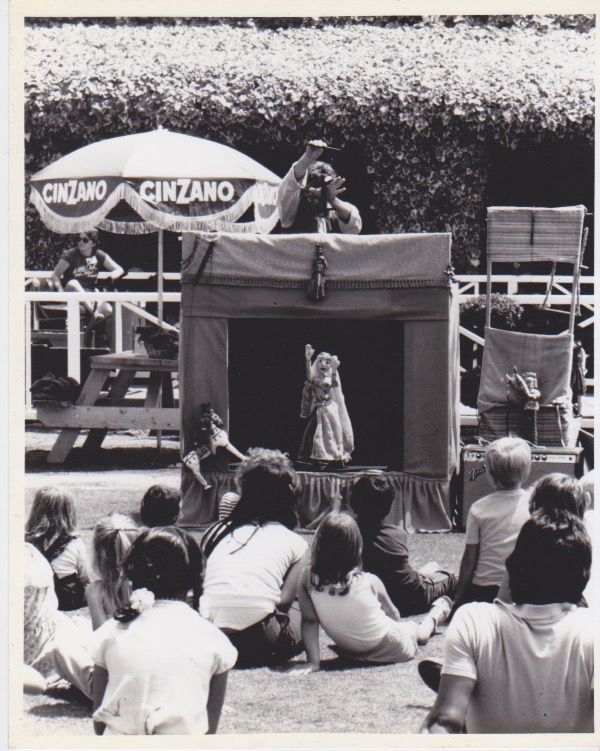The Leela Puppet Theatre is a traveling multimedia marionette extravaganza presenting classical tales from cultures the world over.
Legend has it that Indian puppet traditions began 4000 years ago in the state of Rajasthan in northern India. For centuries, wandering troupes of puppeteers have roamed the countryside to perform at festivals, fairs and religious observances, entertaining maharajas and townspeople alike. No celebration in Rajasthan is complete without a marionette performance!
Gary Gewant began studying puppetry in 1971. After becoming fascinated by an Indian tale, he began researching the ancient art of puppeteering and journeyed to Rajasthan in 1980 to study at the renowned Bharatya Lok Kala Mandal Folk Museum. There he studied the traditional craftsmanship of puppet masters, learning to carve each puppet's head, face, and neck from a single piece of wood, shaping torsos and hands from stuffed cotton rags sewn at the shoulders, draping each one in long trailing skirts and manipulating them skillfully to suggest the movement of legs underneath.
Historically, these puppet shows were not only a source of entertainment, but also provided moral and social education. They addressed issues like the dowry system, women's empowerment, illiteracy, poverty, unemployment and personal hygiene. These performances made people aware of the social problems everyone was facing and presented ways of solving them. Gary has taken his own inventive spin on this ancient art of storytelling, presenting multimedia marionette extravaganzas complete with original musical scores, uproarious characters and creative video montages. His shows are sometimes political, always hilarious, and will leave you cheering for an encore!
Since returning to New York to establish the Leela Puppet Theatre in the 80s, Gary has been performing and introducing this age-old craft to new audiences galore. While the theater home base is in Ulster County, New York, Gary has brought this traveling marionette show to countless schools, libraries, cultural organizations, local festivals, museums, and private events throughout America, keeping this ancient tradition alive and thriving.


